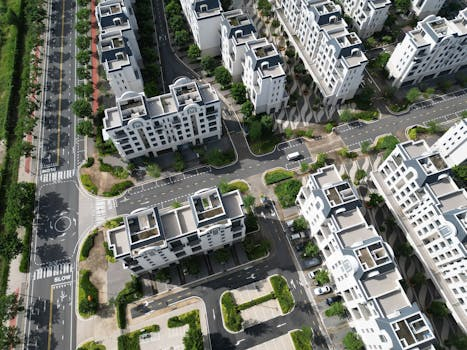Sustainable Urban Development: A Comprehensive Vision
Sustainable urban development has emerged as a key concept in the modern world, as cities continue to grow at an unprecedented rate. With more than half of the world’s population now living in urban areas, it has become crucial to find ways to create cities that are not only livable but also sustainable. This means developing urban spaces that meet the needs of its residents while minimizing the negative impact on the environment. As a result, a comprehensive vision for sustainable urban development has become increasingly important in shaping the future of our cities.
The Concept of Sustainable Urban Development
Sustainable urban development is often defined as the process of creating cities that meet the needs of the current generation without compromising the ability of future generations to meet their own needs. It goes beyond just environmental sustainability and also encompasses social and economic sustainability. In other words, it aims to balance the needs of the present with the needs of the future, ensuring that cities continue to thrive and provide a high quality of life for its inhabitants.
The Importance of a Comprehensive Vision
In order to achieve sustainable urban development, a comprehensive vision is essential. This means taking a holistic approach and considering all aspects of urban life, including environmental, social, and economic factors. It requires collaboration and cooperation between various stakeholders, including government agencies, developers, and local communities.
A comprehensive vision for sustainable urban development involves strategic planning and taking into account the specific needs and circumstances of each city. It also requires a long-term perspective, as the effects of urban development can be felt for generations. This means making decisions that not only benefit present residents but also have a positive impact on future generations.
The Elements of a Comprehensive Vision
1. Environmental Sustainability
Environmental sustainability is a key component of a comprehensive vision for sustainable urban development. This involves promoting resource conservation and reducing the environmental impact of urban areas. This can be achieved through green building practices, promoting the use of renewable energy, and implementing waste management strategies.
2. Social Equity
Social equity is also a crucial element of a comprehensive vision for sustainable urban development. This means creating inclusive cities that provide equal opportunities for all its residents. This includes affordable housing, access to quality education and healthcare, and creating safe and accessible public spaces.
3. Economic Prosperity
Economic prosperity is essential for the long-term sustainability of a city. This means promoting economic development while also ensuring that it benefits all residents. This can be achieved through creating job opportunities, supporting small businesses, and investing in infrastructure that improves connectivity and accessibility within the city.
4. Community Engagement
A comprehensive vision for sustainable urban development cannot be achieved without the involvement and engagement of the community. This means involving citizens in the decision-making process and giving them a voice in shaping the development of their city. It also involves educating the community on the importance of sustainable living and encouraging them to participate in sustainable practices.
The Benefits of a Comprehensive Vision for Sustainable Urban Development
A comprehensive vision for sustainable urban development has numerous benefits for cities and its residents. It can promote economic growth and provide a high quality of life for its inhabitants. It also helps to reduce the negative impact of urban development on the environment, making cities more resilient to climate change. Additionally, it promotes social cohesion and a sense of community, making cities more livable and attractive places to live.
Conclusion
In conclusion, a comprehensive vision for sustainable urban development is crucial in creating cities that are livable, equitable, and environmentally responsible. It requires a collaborative effort and a long-term perspective to achieve a balance between the needs of the present and the future. By implementing a comprehensive vision, we can create cities that not only meet the needs of its current inhabitants but will also continue to thrive for generations to come.











